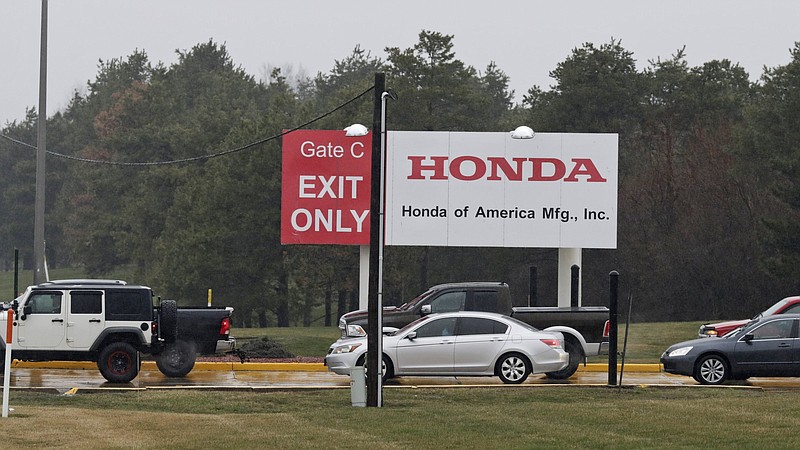Severe weather, port blockages and microchip shortages are wreaking havoc on U.S. auto production with Toyota Motor Corp. and Honda Motor Co. Ltd. now facing disruptions.
The Japanese automakers said Wednesday that they are halting production at plants in North America because of limits in needed supplies, including petrochemicals used in plastic and electronic components and semiconductors. They join other automakers like General Motors Co. that have had to shut down plants this month because of the global shortage of microchips used for high-tech features such as driver-assist technology and heated seats as well as in consumer electronics.
The challenges, especially with semiconductors, highlight the need for strategic alignments for certain parts that require large amounts of scale and investment. That includes batteries needed for forthcoming electric vehicles.
"The scale of production is huge, the investment is huge, and the alignment is strategic," Kristin Dziczek, vice president of industry, labor and economics at the Center for Automotive Research in Ann Arbor, Mich., said of both semiconductors and vehicle batteries. "Disruptions that happen there are going to be difficult to deal with. They do not flow as smoothly as other parts in the industry. It's sticky and chunky."
Toyota's disruptions aren't related to semiconductors, but to a shortage of petrochemicals resulting from extreme winter weather in Texas and Mexico. It affects production of Camry and Avalon sedans and the hybrid RAV4 SUV in Kentucky, engines in West Virginia and Tacoma pickups in Mexico. It is unclear how long the disruption will last, but the automaker does not expect to furlough any employees.
That's also the case for North American employees at Honda even though the company says all of its auto plants in the U.S. and Canada are being affected in some way. Production at most plants will be halted next week, though the situation remains fluid.
"We continue to manage a number of supply chain issues related to the impact from covid-19, congestion at various ports, the microchip shortage and severe winter weather over the past several weeks," Honda said in a statement.
West Coast ports have become overwhelmed after the implementation of covid-19 restrictions. Vancouver, Wash., had a record-breaking 2020 with revenue totaling $50 million, a 15% increase over 2019. February imports rose 26% year-over-year in Oakland, Calif., and 53% in Los Angeles.
"One year ago, global trade slowed to a crawl as the covid-19 pandemic first hit China and then spread worldwide," Gene Seroka, port of Los Angeles executive director, said this week in a statement. "Today, we are in the seventh month of an unparalleled import surge, driven by unprecedented demands by American consumers."
Semiconductor manufacturers, meanwhile, last year had pivoted from producing microchips for automakers, who shut down North American production for weeks, to consumer electronics that experienced increasing demand as more people worked from home and students went to school online.
"It takes three to six months to reallocate," Dziczek said. "It's going to take several months to get that capacity needed after the automakers came back and consumer demand was strong."
Because of semiconductor shortages, production also halted this week at GM's Lansing Grand River making the Chevrolet Camaro and Cadillac CT4 and CT5. It will be down through the rest of March along with the San Luis Potosi plant in Mexico where the Chevrolet Equinox and Trax and GMC Terrain SUVs are built. Other plants facing extended downtime are in Kansas where the Cadillac XT4 SUV and Chevrolet Malibu are made and in Ontario where the Equinox is built. A plant in Brazil also is facing downtime in April and May. Last month, GM said the shortage could hurt 2021 earnings by $1.5 billion to $2 billion.
Subaru Corp. said it has cut back on overtime work and holiday shifts at its Indiana factory. U.S. plants operated by Ford Motor Co., Nissan Motor Co. Ltd. and Volkswagen AG are operating. Stellantis NV did not specify Wednesday if any plants remain down.
